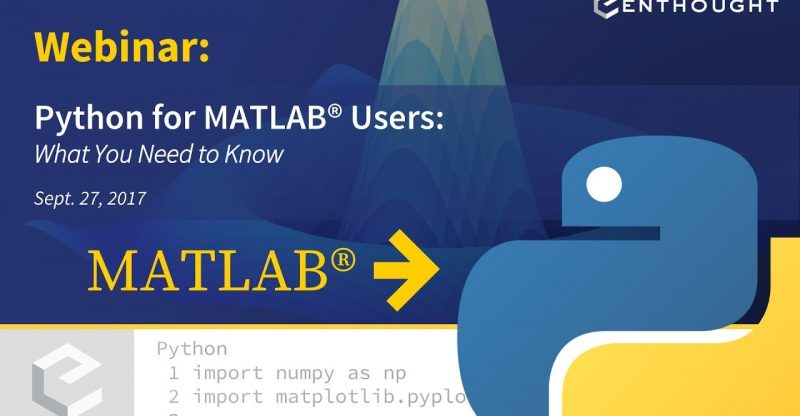Webinar: Python for MATLAB Users, What You Need to Know
In this webinar, we’ll give you the key information and insight you need to quickly evaluate whether Python is the right choice for you, your team, and your organization, including:
*How to get started
*What you need in order to replicate the MATLAB experience
*Important conceptual differences between MATLAB and Python
*Important similarities between MATLAB and Python: What MATLAB knowledge will transfer
*Strategies for converting existing MATLAB code to Python
*How to accelerate your transition
Python has a lot of momentum. Many high profile projects use it and more are migrating to it all the time. Why? One reason is that Python is free, but more importantly, it is because Python has a thriving ecosystem of packages that allow developers to work faster and more efficiently. They can go from prototyping to production to scale on hardware ranging from a Raspberry Pi (or maybe micro controller) to a cluster, all using the same language. A large part of Python’s growth is driven by its excellent support for work in the fields of science, engineering, machine learning, and data science.
You and your organization might be thinking about migrating from MATLAB to Python to get access to the ecosystem and increase your productivity, but you might also have some outstanding questions and concerns, such as: How do I get started? Will any of my knowledge transfer? How different are Python and MATLAB? How long will it take me to become proficient? Is it too big a of a shift? Can I transition gradually or do I have to do it all at once? These are all excellent questions, and are what this webinar was designed to address.
Additional resources for MATLAB users wanting to migrate to Python:
*Free white paper “MATLAB to Python: A Migration Guide”, download here: https://www.enthought.com/white-paper-matlab-to-python
*Enthought’s “Python for Scientists and Engineers” course: https://www.enthought.com/python-for-scientists-and-engineers-training Ideal for MATLAB users who want to accelerate their migration to Python with professional training.
source






